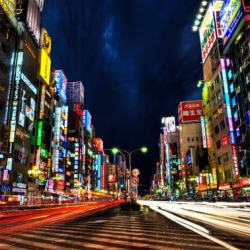In April, Shinzo Abe’s Liberal Democratic Party (LDP) plans to introduce an Integrated Resort Implimentation Bill to finalize the details of Japanese casino gambling. American casino companies like Las Vegas Sands, MGM Resorts, and Caesars Entertainment want to collect a Japanese casino license, but are nervous about the details of the IR Implementation Bill.
Mohammed Cohen wrote an op-ed article on Forbes.com that advised the US casino companies to heed the warnings put out by Japanese politicians. Cohen said the LDP and their allies in the Komeito Party have shown in many ways their antipathy to full integrated casino resorts, but executives have not heard the message.
Like politicians in other democracies, Japan’s lawmakers take note of their people’s concerns. A poll late last year showed that 60% of Japanese voters did not want casino gambling, because they believe it would cause social problems. Prime Minister Shinzo Abe has shown leadership in pushing for a casino industry against the wishes of the majority of his country’s electorate, but that means he has to be cautious in his approach to the casino industry.
Singapore Casino Model
In light of those concerns, Japan’s leaders have seized upon the Singapore casino industry as the template for their own developments. A bill proposed by the LDP in February called for resorts’ gaming space to be limited to 15,000 square meters (161,400 square feet), the size used by Singapore’s casinos.
Mr. Cohen pointed out that Marina Bay Sands in Singapore generates the most revenue of any single casino in the world using that model. At the same time, Singapore is a city of 8.5 million people and has two integrated casino resorts: Marina Bay Sands and Resorts World Sentosa.
Casino Gaming Space Limited
The Tokyo-Yokohama metropolitan area has 37 million people. The Osaka-Kobe metropolitan area has 17 million residents. Most plans has both of those areas containing a single casino apiece, meaning the gaming space per city would be 1/4 and 1/2, respectively, of what you would find in Singapore.
Other details have not pleased US gaming executives, either. The Komeito Party, a key LDP coalition partner which represents the social conservative Buddhist voting bloc, wants limitations on the number of visits Japanese residents can have in a week and in a month. Residents would be limited to 3 visits in a single week and 10 visits over the course of a month.
$76 Entrance Fee Proposal
Those are not the only restrictions the Komeito Party wants. Another is a $76 entrance fee (8000 yen) for Japanese residents. This would drive out all penny players and most mid-stakes players, leaving mainly Japanese VIP high rollers and foreign tourists as the clientele.
Gaming analysts once estimated Japan’s population might generate $40 billion a year in casino revenues. Those figures eventually were adjusted down to $25 billion a year in the current environment, but that is assuming an unconstrained gambling public. Under the current suggestions, most believe Japan’s casino industry would generate closer to $10 billion a year.
$5 Billion Investments
That is good, but not worth the kind of $10 billion investment that LVS’s Sheldon Adelson and MGM Resorts’ Jim Murren once suggested they might pour into a Japanese casino development. Since the talk of restrictions on Japanese gambling became a fixture of IR Bill talks, Adelson has suggested a $5 billion investment might be the upward limit.
Of course, the reason Shinzo Abe is pushing the IR Bill is to help the Japanese economy, both by encouraging foreign investment and foreign tourism. The natural logic would be to maximimze investment and tourism by opening up the Japanese market to casino gambling, a logic that the American gaming companies have followed. In the mind of MGM Resorts and Las Vegas Sands, they already have casinos in Macau to draw Chinese and continental East Asian customers (and LVS has Marina Bay Sands). Building new casinos in Japan to lure the same customers hardly makes sense.
Caesars’ Tomakomai Casino Plan
Caesars Entertainment’s Mark Frissora seems to have grasped the situation more solidly than his competitors. Frissora made a visit to Japan earlier this month and touted a plan to build a casino in the Tomakomai on the norhtern Japanese island of Hokkaido. Such a casino might reassure more conservative Japanese lawmakers, because the casino resort would be away from the largest population centers (but be less profitable).
American casino companies have to tread lightly, because they may have significant competition. The big Chinese-owned Macau operators like Galaxy Entertainment and Melco Entertainment both want Japanese casino licenses. Universal Entertainment, a maker of Japanese pachinko machines, has delved into casino operation with a $2 billion resort in the Philippines. Malaysian multinational conglomerate, Genting Group, owns the other Singaporean casino and might have more resources than any other competitor to make a bid.
How Many Japanese Casino Licenses?
That brings up the most important part of the IR Implementation Bill which will be decided in the coming months: how many casino licenses there will be. The Liberal Democratic Party’s plan in February called for 6 casino licenses. The Komeito Party’s plan unveiled earlier this month would include 2 or 3 licenses. If the LDP’s plan succeeds, then there should be enough licenses to go around for all the big companies — though the Tokyo and Osaka licenses would be the most lucrative.
If the Komeito Party succeeds, then the competition will be fierce for the few licenses approved. It sounds like a negotiation is needed, but that means gaming space limitations, entrance fees, and monthly visitation limits might be on the table.

